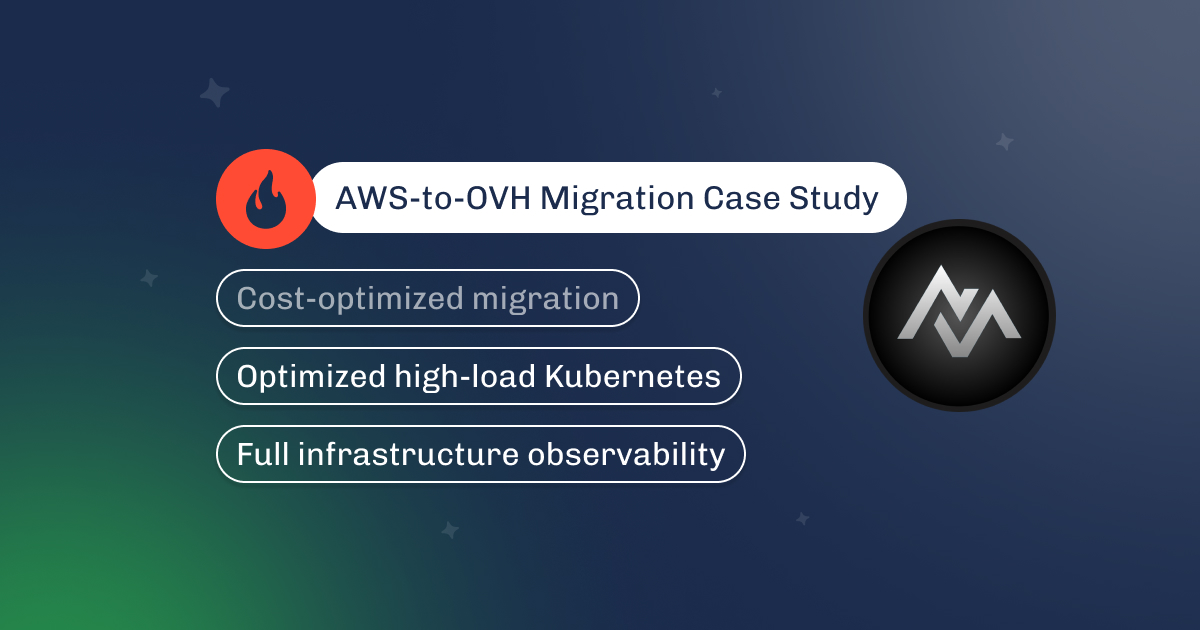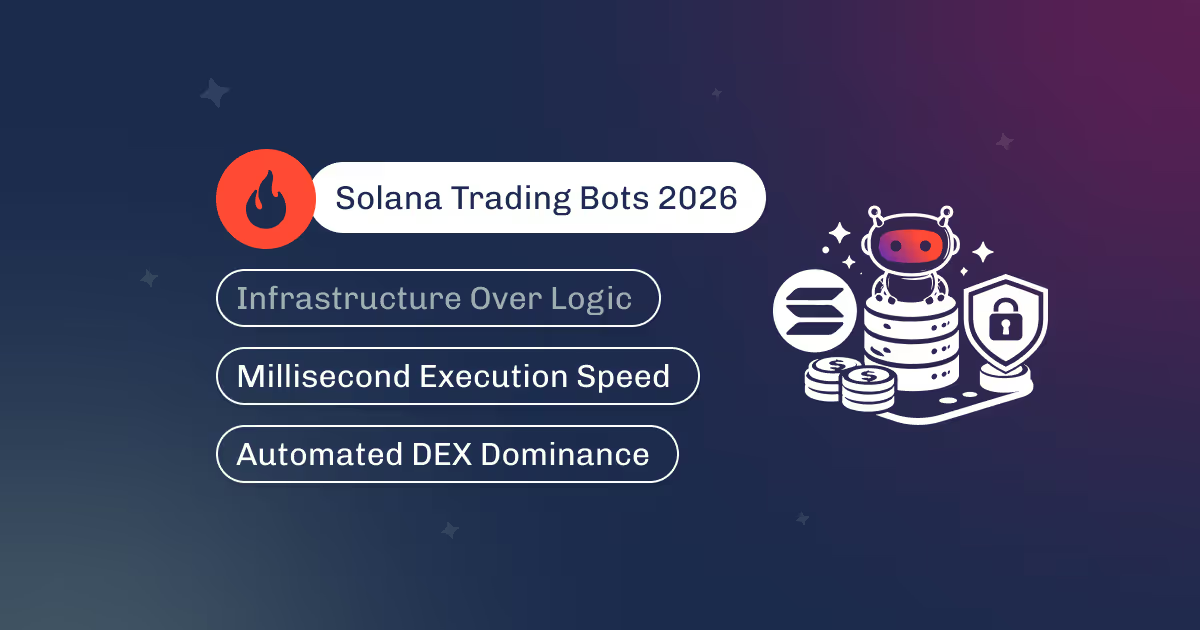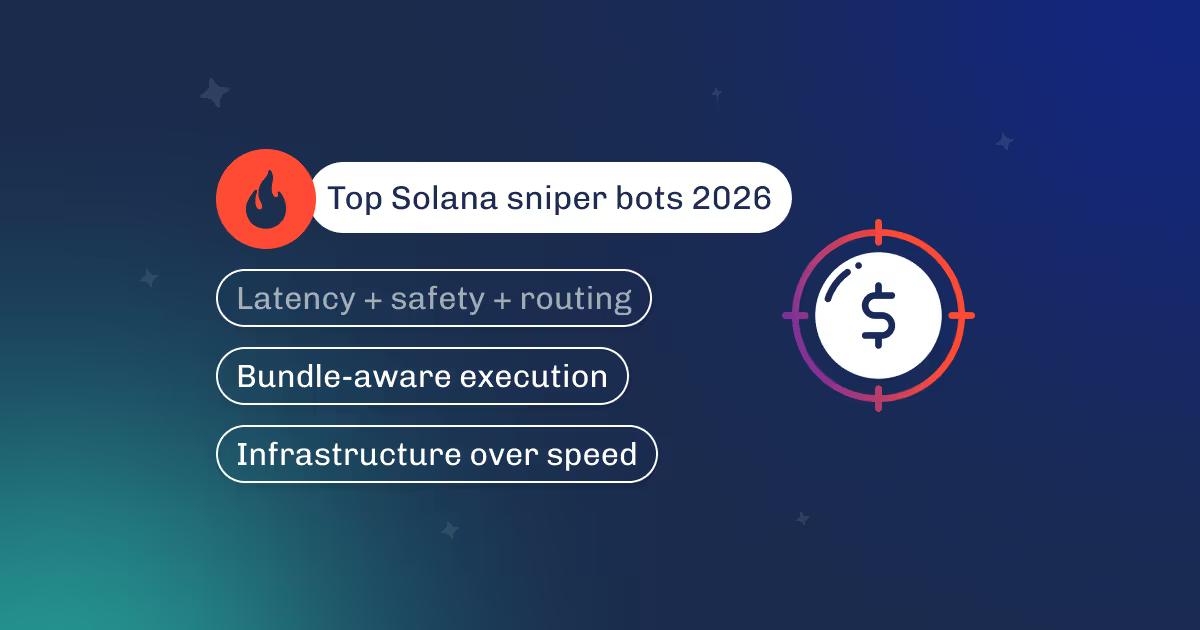
During our ML research and market investigation, we discovered many treasures to share. One of our most valuable achievements was clarifying the definitions, typology, and customer preferences in MLOps.
Our engineers work hard on tools, mechanisms, mathematical models, paradigms, and other algorithms, which are the technical foundations of this domain. We’ll guide you through the market presence and business aspects.
And while Dysnix isn’t a 100% ML company yet, we have our strong points to brag about: our experience in ML lies in the AI-based predictive autoscaler for Web2/Web3 projects—PredictKube and a full-cycle MLOps service suite.

Buckle up; you’ll learn a bit about machine learning companies in the US and the rest of the world.
Your business niche contains companies using machine learning to create a competitive edge; some do that successfully. Each industry has its scope of challenges that AI/ML can solve. Business functions with repetitive tasks, linear tree-like decision-making, slow information exchange and processing, or a high need for forecasting and optimizing—are the zones for implementing the mentioned solutions.
| Business Function | Expected Improvements Enabled by Machine Learning Software Development Firm |
|---|---|
| Marketing and Sales |
|
| Customer Service |
|
| Finance and Accounting |
|
| Human Resources |
|
| Supply Chain, Logistics, and Manufacturing |
|
| R&D |
|
| IT and Cybersecurity |
|
| Legal and Compliance |
|
| Procurement |
|
| Facilities Management |
|
| Environmental Sustainability |
|
Companies that use machine learning can replace some of the staff responsibilities delegated to AI solutions with controlling and monitoring the performance of AI tools. So, when a team uses machine learning, in most cases, it doesn’t lead to firing personnel but changes in their work routine. Multifunctional custom AI tools can take on a whole bunch of responsibilities, yet many experts will have to manage, update, or maintain them.
So you see, in 2025, most myths and fears about “robots made by AI and machine learning companies will come and take our jobs and lives” are simplified and downgraded to reality—every case of implementation shows that nothing created by humans, even extremely intelligent neural networks, is flawless.
As DevOps engineers, we select AI machine learning companies to our list, grouping them according to the specialization in MLOps’ “Holy Trinity”—Data, Model, and Code. Separately, we’ll review what the most prominent cloud vendors offer to implement and maintain ML and AI models.
Of course, we’re not one of the rating’n’review websites like Clutch, and we made some of our choices based on sympathy, mutual tech preferences, or sharing similar values, so just review this list as nice-to-know machine learning service providers.
These are the best companies for machine learning tasks related to big data processing, ETL pipeline establishment, data normalization, etc. Most specialize in preparing data for machine learning platforms or educating the model, which makes them stronger players from our point of view. Machine learning firms must constantly refine their math and data science backgrounds to offer their customers the most relevant AI/ML solutions.
With these guys below, you can be sure of their data skills.
| Machine learning company | Distinctive features |
|---|---|
.svg)
Cloudera |
A machine learning agency specializing in data engineering and analytics, providing platforms that facilitate efficient data management and integration for machine learning workflows. |
.svg)
Dataloop AI |
A platform from a machine learning service provider beneficial for data labeling, annotation, and management. It offers tools that streamline the preparation of datasets for machine learning models. |
.svg)
Databricks |
This is a unified data analytics platform for data engineering and collaborative data science if you need it. |
.svg)
Polestar Solutions |
We respect this one of the best machine learning companies for the architecture modernization we love to perform by ourselves. |
.svg)
LTIMindtree |
If you need someone reliable to ensure encryption, security, compliance, and accessibility, these guys know what to do. |
.svg)
Six Feet Up |
Do you like Python as we do? Then, these guys, among other machine learning companies, exceed both of us and implement Python & AI projects as swiftly as this sentence ends. |
Developing a well-performing model is challenging, even in crystal clear cases with many first-class data and a list of use cases and working scenarios. Machine learning development companies specialized in model training are no less scientists at their core than data experts from above. Some of them, such as deep learning companies, can create a separate “brain,” a multileveled neural network, not a bare model, for your case, that will make complex decisions quickly.
| Machine learning solutions company | Distinctive features |
|---|---|
.svg)
Clarifai |
Their platform leverages modern Large Language Models (LLMs) and Large Vision Models (LVMs) and is available in cloud, on-premises, or hybrid environments. This detail warms our DevOps hearts! |

C3.ai |
They offer enterprise solutions, such as pre-built models optimized for specific industries, which is quite a good idea for speeding up development. |
.svg)
DataRobot |
An automated machine learning platform that accelerates the development and deployment of predictive models (but not limited to). |
.svg)
H2O.ai |
This machine learning services company delivers open-source and enterprise AI platforms for agentic AI, predictive analytics, generative AI, and other applications. |

STX Next |
Large language models, retrieval-augmented generation, predictive analytics, and generative AI-powered chatbots. All from one machine learning provider. |
These top machine learning companies are not always about heavy coding and “hard code.” Some offer you the option to completely get rid of code in your AI/ML project, which sounds crazy at first glance. Other machine learning services companies will help you even if you’re into a college-level machine learning project. Find the one that speaks to you.
| Machine learning development firm | Distinctive features |
|---|---|

Appinventiv |
It offers end-to-end machine learning development services, including data preprocessing, feature engineering, model training, and deployment, tailored for industries such as healthcare and finance. |

NineTwoThree |
One of those machine learning software companies that works under the same values umbrella as we do. Also recognized for creating and providing custom ML solutions that focus on seamless system integration and scalability, catering to diverse business needs. |

Dataiku |
One of the most prominent machine learning solution providers, it offers a comprehensive platform for data preparation, automated feature engineering, and guided machine learning. It supports Python, R, and Scala for advanced model development. |

MathWorks |
This platform, from the creator of MATLAB and Simulink, integrates ML into systems for data preprocessing, clustering, neural network design, and advanced model evaluation. |
You can expect MLaaS (ML as a Service) from the biggest machine learning companies, like technological giants. They are not replacing those top ML companies mentioned above but offer their approach to operating AI and solving ML tasks for those who are looking for an exact fit to the underlayer, the ecosystem, and a ready toolbox, who want to have everything in one place, not running between a few machine learning agencies or tools. This approach is fair for those who want to build quickly and launch fast, not looking for unique customization or custom development.

The difference between services related to machine learning for companies provided today and 7-10 years ago is noticeable. From an almost futuristic and closed topic with an “only for data scientists” badge, machine learning has become an everyday tool for many companies and organizations. It became the desired tool, a natural answer to the enlarging mass of information. Ask deep-learning AI companies if any volumes of information are challenging for them—no, they need them as air.
Furthermore, even your favorite coffee shop can utilize AI to predict your next purchase (well, your barista does the same quite successfully). In the flashlight of this mass implementation, some bright trends shape the riverbed for the future of machine learning organizations:
“Shut up and take my money!” era of machine learning vendors is over. Businesses want to see tangible economic returns from their AI investments because the last ones are visible (e.g., up to 3.32% of their revenue to AI, according to the latest IBM survey).
The initial excitement around generative AI gives way to a demand for demonstrable productivity and efficiency gains, prompting ML service providers to prioritize solutions that deliver clear value.

What makes each AI solution explainable? No black box. There are no loose ends in the data pipelines. Being neutral and ethical is maybe one of the most challenging tasks, but the world has enough hallucinating AI models for bad examples, so there’s no need to add more. The regulations around AI are rising fast; now, it’s up to developers and data scientists to prove them eligible.
Machines that educate machines? Now. AutoML tools and service suits help businesses develop and deploy ML models with minimal manual intervention. This trend democratizes access to all the “math” behind the solutions, allowing organizations without extensive expertise to leverage their data efficiently.
Agentic AI is a system capable of performing tasks independently without direct human intervention. Companies develop these AI agents to handle specific routinized business tasks, enhancing operational efficiency.

AI isn’t an enterprise privilege anymore, and if you have an idea of what to do with your data to make it work for you—why won’t you try it with us or other machine learning and artificial intelligence companies? There won’t be any better time than now.









